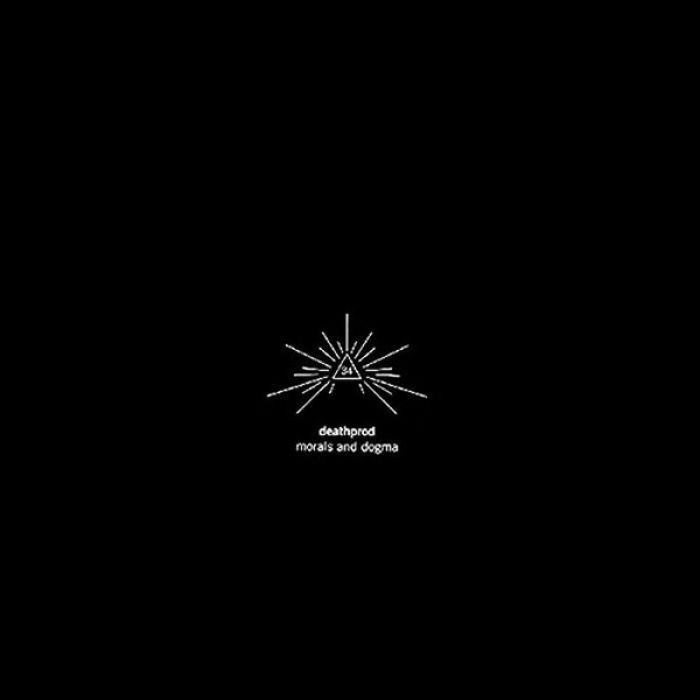Morals and Dogma by Deathprod (Review)

Now is not the time for sad music. The sun is out, the trees are still a vibrant green, fun with friends abounds, and school is just around the bend. This is a time that demands music that is just as sunny and enjoyable as the weather outside. And though summer is retreating like the ocean retreats from the shore at low tide, it’s not quite time to whip out those CDs built for cold weather.
Still though, there is this part of me that is seemingly addicted to negativity that needs the occasional downer now and then. And so, I bought myself a copy of Morals and Dogma by Norwegian ambient artist Deathprod, based on a recommendation from Aaron over at almostcool.org, who described it as “the deepest, darkest ambient” he had ever heard. And a downer is what it is — four tracks of weighty, cold ambient music that will end up making you feel lonesome and mournful.
Deathprod is one Helge Sten, a member of Supersilent, a band known for creating intriguing, spacey sounds and otherworldly drones, and like the band he hails from, he uses plenty of interesting sonics and drones to produce heady masses of sound. However, unlike Supersilent, there’s nothing jarring or indulgent about Deathprod’s songs, and he somehow manages to create tracks that seem even larger in scope and size than those found on 6.
And much darker as well. As said before, this is not a cheery release, and the songs contained within are as black as the packaging. “Tron” opens the disk with clouds of cold, lifeless drones and envelopes you like thick morning fog. As the track slowly progresses, things get even heavier as generous doses of low-end and more drones are layered on top, before it quietly dissolves into the eerie second track, “Dead People’s Things.” Starting slowly with ominous violin and dark undertones, it gets more interesting as what sounds like a mournful theremin rises above the mix and weeps for nearly twenty minutes.
Next comes “Orgone Donor,” which sticks out from the rest thanks to the violins of Hans Magnus Ryan and Ole Henrik Moe (who also composed the song.) Unlike the other three tracks, “Orgone Donor” is a bit more progressive and has a bit more structure, as decayed violins burst out of the drones like light shining through clouds. At once uplifting and heartbreaking, it’s the album’s most beautiful track.
And then there’s “Cloudchamber,” an overwhelming piece that seems to weigh a thousand tons. Swells of dark noise make it sound like a wheezing, ghostly machine, and it’s as the drones get layered on and your headphones become decidedly overcast with ambient drones that it almost becomes too much to listen to.
I suppose it is not fair of me to be calling this album a downer and touting it as a hefty and depressing listen. Calling it such seems to undermine the craft that Deathprod is working at here, and emotions aside, this is some amazing ambient music. Deathprod creates soundscapes that are huge, deep, cinematic, and cerebral; this is the kind of music that demands your complete attention, and is just too good — and too overwhelming — to serve as mere wallpaper.
What Deathprod has done is create the musical equivalent of a black hole, a mass of music so dark and unpenetrable that no light or happy sounds can escape from it. And although it probably won’t be getting much play in my CD player as of now, when the weather starts to get chilly and the trees start to die, I expect it to suck me right in. Bring anti-depressants.
Written by Richie DeMaria.